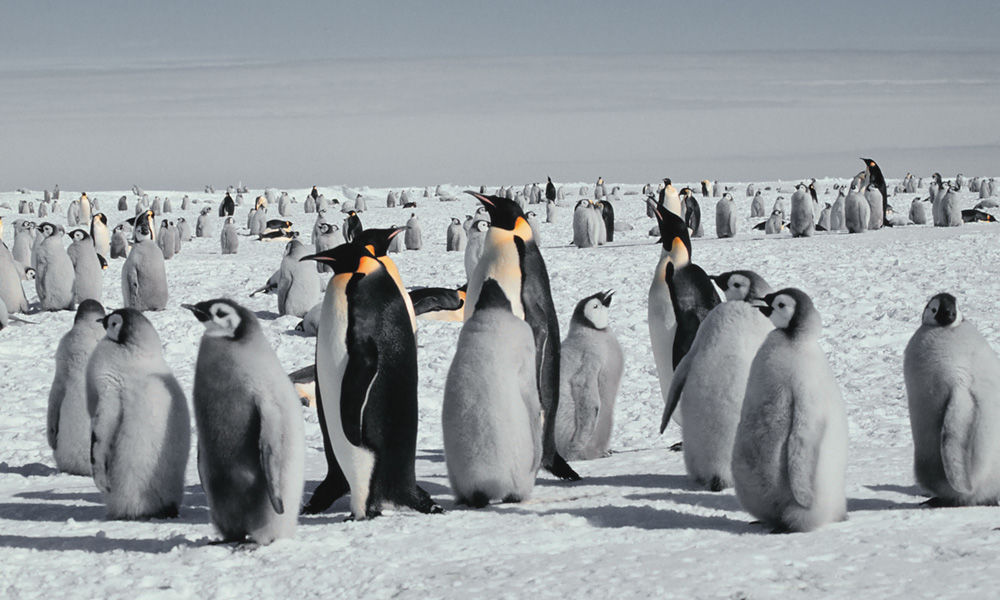Satellite images have revealed 11 new colonies of emperor penguins in Antarctica, increasing the number of known colonies of the birds by 20 per cent.
Scientists discovered the new colonies by identifying the distinctive red-brown guano, or penguin poop stains on the sea ice. The sightings were possible due to the higher-resolution images from a new satellite, as previous scans were unable to pick up smaller colonies.
The study, which relied on satellite imagery from the European Space Agency’s Copernicus Mission’s Sentinel-2, was published in the journal Remote Sensing in Ecology and Conservation.
To the scientists’ surprise, two of the colonies were far from the coast, living on sea ice that is anchored to grounded icebergs – a location previously not seen.
As the new colonies are believed to number a few hundred penguins each, the discoveries increase the total population of these penguins by a smaller proportion of about 5-10 per cent.
Emperor penguins are the only penguins that breed on Antarctic sea ice – an ecosystem that is dynamic, at risk and extremely difficult to study – making these penguins especially vulnerable to the climate crisis.
‘The [new colonies] are an exciting discovery. Whilst this is good news, the colonies are small and so only take the overall population count up to just over half a million penguins,’ Peter Fretwell, at the British Antarctic Survey (BAS), who led the research, was quoted by The Guardian.
Meanwhile, Philip Trathan, at BAS, said, ‘The new breeding sites are all in locations where recent model projections suggest emperor penguins will decline. These birds are therefore probably the canaries in the coalmine – we need to watch these sites carefully as climate change will affect this region.’
Several previous studies have said that, if no action is taken to cut greenhouse gas emissions, an estimated 80 per cent of known penguin colonies will be lost by the end of the century.
‘The only real threat to emperor penguins is climate change. Once the sea ice melts you can’t put it back. There’s nothing we can do on a local level at each colony to help the penguins — it really is a global problem,’ Fretwell told CNN.
Also Read: Two Canadian Ice Caps Disappear Due To Global Warming In Less Than 40 Years, Satellite Images Reveal












